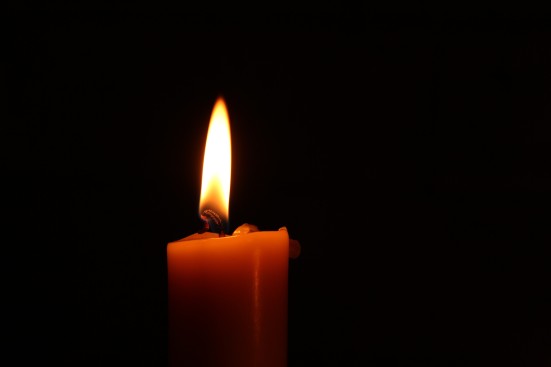
Not the All Blacks we love
This week’s mass power outages where around 20,000 homes lost power from the grid has highlighted the fickle nature of our electricity market. Those connected to the grid are at the mercy of the power gentailers in their relentless quest for higher profits.
Solar’s part at the fringe
Solar electricity generation isn’t going to solve the situation itself. However, at the fringe solar should definitely be incorporated as relieving some of the stress on the grid. Homeowners can each play a small part in both reducing peak demand, as well as freeing up capacity for the existing generation assets to power the evening peak. Simple, often overlooked low cost hot water diverters would have taken away from the extra demand in the evening.
Blackouts Result of Profit Motives
Blackouts. They’re great if you’re at a Bledisloe Cup test, less so when you’re just trying to stay warm. We feel for those who were left in the cold and dark on Monday.
This week’s mass power cuts where around 20,000 homes lost power from the grid has highlighted the fickle nature of our electricity supply structure. Those connected to the grid are at the mercy of the power generators in their relentless quest for higher profits. These generators are by and large retailers as well – hence the “gentailers” term. Think Genesis, Contact, Mercury, Meridian and Trustpower.
Let’s take a look at what we know about Monday night’s blackout situation, and what it means for those at home.
Unravelling Situation
Monday morning, grid operator Transpower issued a notification to generators about the potential shortfall the coming evening. Later in the day high winds caused weeds to push towards the intake gates at Genesis’ Lake Rotoaira generation plant in the Tongariro power scheme. This reduced generation at the same time as wind generation in the central North Island halving as the evening went still across the wind turbine generation network. Unfortunately, the timing of these was just before the country’s evening peak demand period. Genesis’ coal fuelled Rankine units at Huntly are deemed to have a six-ten hour lead time to fire up generation from a cold start to a meaningful level, so was of little help to cover the shortfall. Genesis had earlier made the decision not to engage the third Rankine unit, despite a Warning Notice highlighting the risk of insufficient generation. Likewise, Contact’s spare gas-fired generator required 72 hours’ notice. Meridian and Mercury however were reported as generating at capacity.
Compounding the shortfall, as the still night drew colder, demand from users sharply increased in their bid to keep warm and keep the lights on at home. Energy Minister Megan Woods has suggested Transpower had underestimated the scale of the evening’s demand. Subsequently identifying the shortfall after 5pm, Transpower issued generators a Grid Emergency Report as there was insufficient generation to meet demand. With no more generation to immediately call upon, the grid stress was too much with the decision being made by lines companies WEL Networks and Unison to cut supply, despite lake levels being high.
Impact on Wholesale Prices
One way to visualise the impacts is to review the wholesale prices, which can be used as a proxy for the likelihood of a blackout. The eye-watering price spike is clear to see:
| Wholesale electricity price trends | |
|---|---|
Period end | Price ($/MWh) |
| 9/08/2021 15:00 | 150 |
| 9/08/2021 15:30 | 151 |
| 9/08/2021 16:00 | 235 |
| 9/08/2021 16:30 | 365 |
| 9/08/2021 17:00 | 369 |
| 9/08/2021 17:30 | 373 |
| 9/08/2021 18:00 | 552 |
| 9/08/2021 18:30 | 105,252 |
| 9/08/2021 19:00 | 211,310 |
| 9/08/2021 19:30 | 1,045 |
| 9/08/2021 20:00 | 326 |
| 9/08/2021 20:30 | 241 |
| From www.emi.ea.govt.nz provided by the Electricity Authority | |
What does this mean for Homeowners?
While very uncommon, these scenarios do pop up from time to time. Some are outside of the generator’s hands, some like the above have been deemed by the Energy Minister to be down to commercial decisions. Being treated as a number in the quest to squeeze out maximum profits can be a hard pill to swallow for those left in the dark. Coupled with the likes of Undesirable Trading Situations, homeowners are right to feel aggrieved at their treatment by the behemoth power companies.
Solar’s part at the fringe
Let’s not kid ourselves – as much as we’d love to think so, Solar electricity generation isn’t going to solve the situation itself. At the point in time of Monday’s blackouts it was already dark. It is important to also point out that given the scale of increased demand, home batteries would have softened the blow in a small part, but not for too long.
However, at the fringe solar is a valuable tool in the electricity generation belt and should definitely be incorporated as relieving some of the pressure on the grid. With distributed home solar generation, homeowners can each play a small part in both reducing peak demand, as well as freeing up capacity for the existing generation assets to power the evening peak. This is particularly the case during dry summer periods, when solar plays a natural complement to hedge stressed hydro generation.
While often overlooked, simple lower cost devices such as a hot water diverter used throughout the day to heat hot water cylinders would have taken away from the extra demand to heat water in the evening. This itself has a much larger impact than it receives credit for. These diverters are great at a micro level for homeowner savings, as well as helping the generation portfolio through the sum of its parts at a macro nationwide level.
Our view was echoed and the situation was summarised well by Brendan Winitana, SEANZ Chair who says, “Yesterday’s Grid Emergency Notice and resulting mass power outages provides a clear indication that the current energy market is facing serious issues. It’s likely the enforced outage imposed on thousands of people won’t be a one-off occurrence, and as a country, we need to look at alternative solutions to generate power and meet our increasing energy demands.”
What can homeowners do?
There are a few things homeowners can do (but not all of them helpful).
- Hope they won’t happen again.
- Pressure the government to change the market. Check out jointherevolt.co.nz for Flick Electric’s campaign to reform New Zealand's broken electricity market, or have your say on the Onslow battery project.
- Build a bunker and go right off grid.
- Get a home Solar system with a hot water diverter.
Ultimately we believe these situations are rare enough not to be put off remaining connected to the grid. A simple home solar solution (including a hot water diverter mentioned above) is more affordable than you think, with great financial returns. While not swaying the wider market, you’ll be doing your bit at the margin to help generation capacity, all while directly benefiting from your own generation. Sweet!
